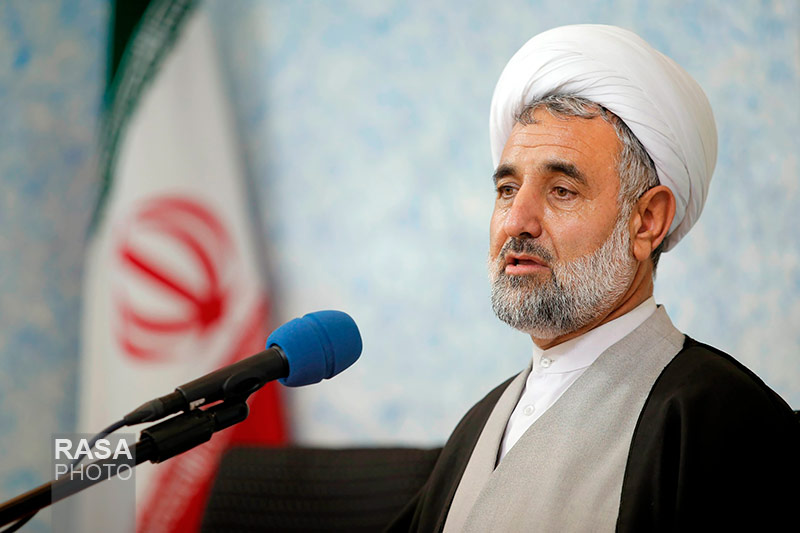It’s necessary to change the discourse, criticism of economic situation given the current conditions

RNA – Speaking at the Meysam Tammar Missonary’s Conference in the auditorium of the Imam Khomeyni Education and Research Institute in Qom, Hujjat al-Islam Mojtaba Zonnour referred to a hadith which has been narrated from the Prophet Muhammad, which says: “Poverty places mankind on the brink of disbelief” and said, “This hadith depicts itself in two scenes: First, with regard to the Islamic Republic, the people expect the clergy to examine the living conditions and secondly, the administration of society and the enemies are seeking to insinuate to the people to have greater expectations from the Islamic system of government in order to cause society to be dissatisfied with the Islamic system and be cynical of the clergy.”
The representative of the people of Qom in the Islamic Consultative Assembly continued, “In the face of the cynicism of the people towards the clergy, instead of protesting to the relevant politicians and government officials, the people grab seminarians and clerics by the collar while the livelihoods of most of them are lower than the average of society.”
He said that the atmosphere of the country is fraught with economic problems and is facing psychological warfare by the enemies and the Islamic Revolutionary Front must be held accountable in a different manner and added, “The current state of the country isn’t like it was during the pre-revolutionary area or during the era of the Sacred Defence [Iran-Iraq War], which had a specified battlefield, lineation and path to fight.”
Hujjat al-Islam Zonnour added, “Given the conditions facing the country today, any criticism or expression of the problems of the government must be done in a careful method so that the interest of the people toward the system is strengthened and so that it isn’t harmed, the system’s past isn’t put under question or slandered, pure and honest servants aren’t harmed and so the people are noticed by the main perpetrators and use their advice to solve the economic crisis.”
The head of the Clerical Faction in the Islamic Consultative Assembly highlighted the reasons why the Supreme Leader of the Islamic Revolution, Ayatollah Sayyed Ali Khamenei, didn’t enter into the executive issues of the country and stated, “There is, in principle, no possibility for the Supreme Leader to enter into all of the executive matters of the government because in every ministry there are thousands of different issues that have caused the problems of the country and are not related to a specific issue that [the Supreme Leader] should enter into.”
He said that the most important reason for the problems facing Iran today is that the custodians of the executive affairs of the country and the politicians are not obedient and committed to the demands of the Supreme Leader and therefore, the actions of the Supreme Leader are considered to be an act of extra-legality and when he enters into the executive affairs, the same officials imply that people’s votes aren’t respected.”
Criticizing the government and the parliament’s failure to address the problems of the people, Hujjat al-Islam Zonnour said, “In these critical times, when the country is facing an economic war, the parliament could help the people but the main problems of the people weren’t raised in the parliament.”
Referring to the management and executive capabilities of the Supreme Leader, he said, “His art is that despite the existence of irresponsible and uncommitted individuals in the government, he has preserved and advanced the Islamic system in the best possible manner, while great personalities, such as the martyrs Mortaza Motahhari, Sayyed Mohammad Beheshti and Mohammad-Ali Rajaei, were present during the time of Imam Khomeyni and helped him.”
Rasa Newa Agency
112/971